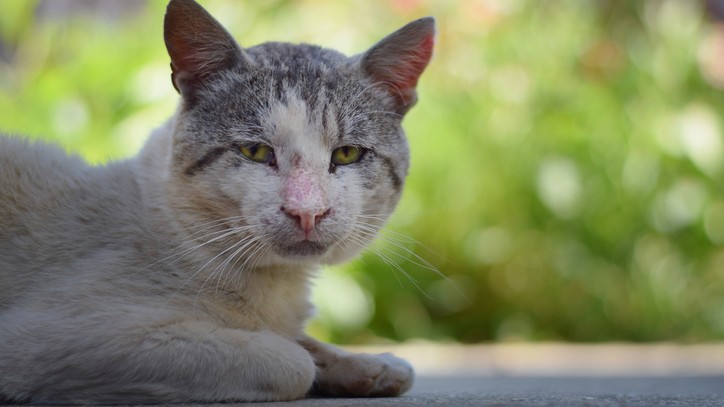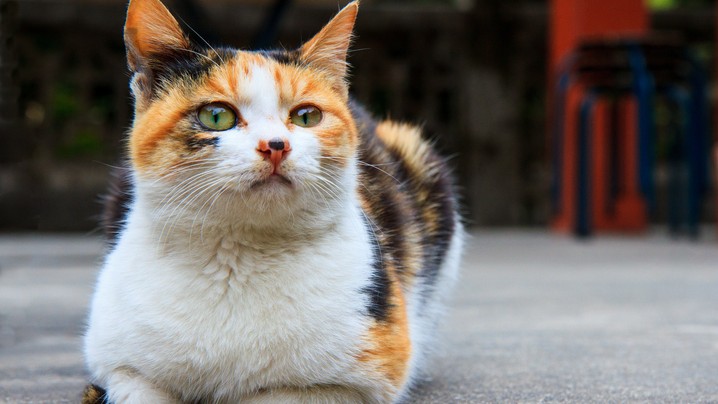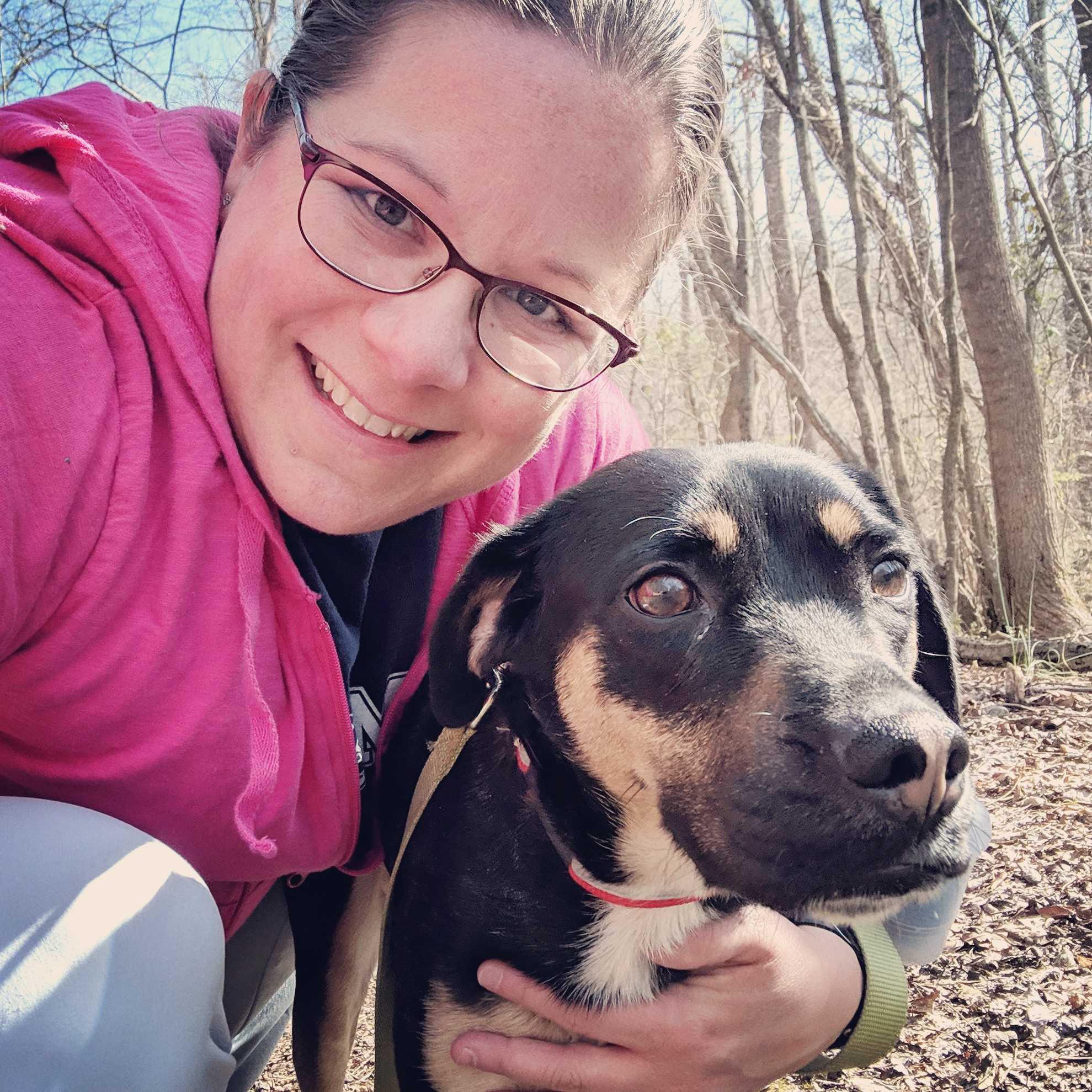What should I feed my older cat? A vet's guide
As your cat ages, her nutritional needs change. Understanding your older cat’s dietary requirements can help ensure that she lives a long and happy life

Get the best advice, tips and top tech for your beloved Pets
You are now subscribed
Your newsletter sign-up was successful
Thanks to advances in veterinary medicine and safer lifestyles for pets, the number of older cats in the United States is steadily increasing. While this is certainly a good thing, because it means we have more years to snuggle with our beloved feline friends, it also means that we need to take this aging process into consideration when caring for our pets as they advance in age. The medical and nutritional needs of a senior or geriatric cat differ significantly from the needs of a typical adult cat.
- The best cat food: Budget buys and premium picks
- The best dry cat foods: King of cat kibble revealed
- Best cat toys: Keep your feline friend occupied with these great toys
- Best microchip cat flap: Keep out unwanted feline guests
When is a cat an “older cat?”
The American Animal Hospital Association and the American Association of Feline Practitioners have set out established definitions for feline life stages. They define a senior cat as a cat that is 11 to 14 years old, while a geriatric cat is one that is 15 or more years old.
Senior and geriatric cats have different needs than kittens and adult cats. They require more hands-on veterinary monitoring and care, as well as special attention to their nutrition. The nutritional requirements of a senior or geriatric cat may be affected not only by underlying medical conditions, but also by common changes in metabolism and nutrient absorption.
Commercially available senior diets are designed to help meet the needs of this older feline population. These foods are formulated specifically to meet the nutritional requirements of aging cats, taking into accounts differences in metabolism, nutrient absorption, and needs.
- The best cat food: Budget buys and premium picks
- Best cat toys: Keep your feline friend occupied with these great toys
Weight management in older cats
While weight management is a common feline battle, it presents even more of an issue in older cats. In many cases, senior cats tend to gain weight and have a tendency towards obesity, because they are less active than in their younger years and may experience a slower metabolism. As cats age into their geriatric years, however, this tendency often reverses. Geriatric cats often become underweight, with owners struggling to maintain weight on their senior cats.
If your cat is experiencing weight gain or weight loss, the first step is to schedule an appointment with your veterinarian. Your veterinarian will perform a thorough physical exam and laboratory testing, to determine whether there are any underlying diseases contributing to your cat’s weight gain or weight loss. If any underlying conditions are discovered, your veterinarian can work with you to develop a plan to correct these issues. You should also read A vet's guide to healthy weight loss for cats.
Nutrient requirements of older cats
While older cats require the same fundamental nutrients as younger cats, these nutrients are often delivered in different quantities to address the unique needs of this population.
Get the best advice, tips and top tech for your beloved Pets
As cats age, especially as they reach the geriatric years, they often struggle to efficiently absorb nutrients from their food. Therefore, older cats should be fed a diet that contains high-quality fats and proteins, to ensure that these nutrients are digested. Fats and proteins are essential, in order to help older cats maintain a healthy muscle mass and overall body condition. Additionally, older cats often benefit from a diet that is high in antioxidants. Senior diets should also be low in phosphorus, to reduce stress on the kidneys, and low in sodium, to minimize the risk of kidney disease and hypertension (high blood pressure).
Some cats develop medical conditions that affect their nutrient requirements. For example, a cat with chronic kidney disease will need a low-protein prescription diet, in order to reduce the amount of protein that must be processed by the kidneys. If your cat develops a significant medical condition, your veterinarian will work with you to ensure that your cat is receiving optimal nutrition to aid in the management of that condition.

Keeping your older cat hydrated
As cats age, they often become less sensitive to thirst than they were as younger cats. Additionally, a number of common medical conditions in older cats (such as chronic kidney disease, diabetes mellitus, and hyperthyroidism) can lead to dehydration. Therefore, it’s important to ensure that older cats are obtaining enough water. Several water bowls should always be available around the house, containing fresh, clean water. These bowls should be carefully monitored to ensure that your cat is drinking.
One simple way to increase your older cat’s water intake is to feed a canned diet. The best wet cat food is 70 to 80 percent water, which means that most cats eating a canned diet will not need to drink much water in order to remain hydrated. Additionally, seek out ways to make your cat’s water more appealing. Keeping your cat’s water clean and fresh can help entice your cat to drink more, as can the use of the best pet water fountains. Adding a few drops of low-sodium chicken broth or tuna juice to your cat’s water can also help make the taste of water more appealing, although you should also continue to offer unflavored water in case that is what your cat prefers.
Everything in moderation
Many owners enjoy giving their cat treats, whether they are using commercial cat treats or the occasional bite of tuna. Depending on your cat’s overall health and any underlying medical conditions, you may be able to continue to do so. Talk to your veterinarian, to determine whether your preferred cat treats are a safe option for your feline companion. If your veterinarian okays your specific treats, focus on portion control. Treats are not well-balanced like a high-quality cat food, so it’s important that they constitute only a small percentage of your cat’s diet.
Enjoy your cat’s older years
Through proper nutrition, you can help ensure that your older cat lives a long and healthy life. Instead of viewing your cat’s nutritional demands during this season of life as an external demand that is being imposed upon you, focus on viewing this information as helpful and productive, allowing you to maximize your older cat’s senior years.
Wondering, 'How long do cats live?' this vet's guide has the answer.
Dr. Barnette is a graduate of the University of Florida, where she received both her B.S. in Zoology and her Doctor of Veterinary Medicine (DVM). She has 15 years of clinical experience as a small animal veterinarian, treating dogs, cats, and occasional exotic patients. She now works as a freelance veterinary writer, creating educational content for veterinarians, veterinary team members, and dedicated pet owners. Dr. Barnette lives in southwest Florida with her husband and daughter (plus two cats, a dog, and a rescued dove!) and enjoys kayaking, biking, and hiking. Learn more about Dr. Barnette at www.linkedin.com/in/catherinebarnette.

